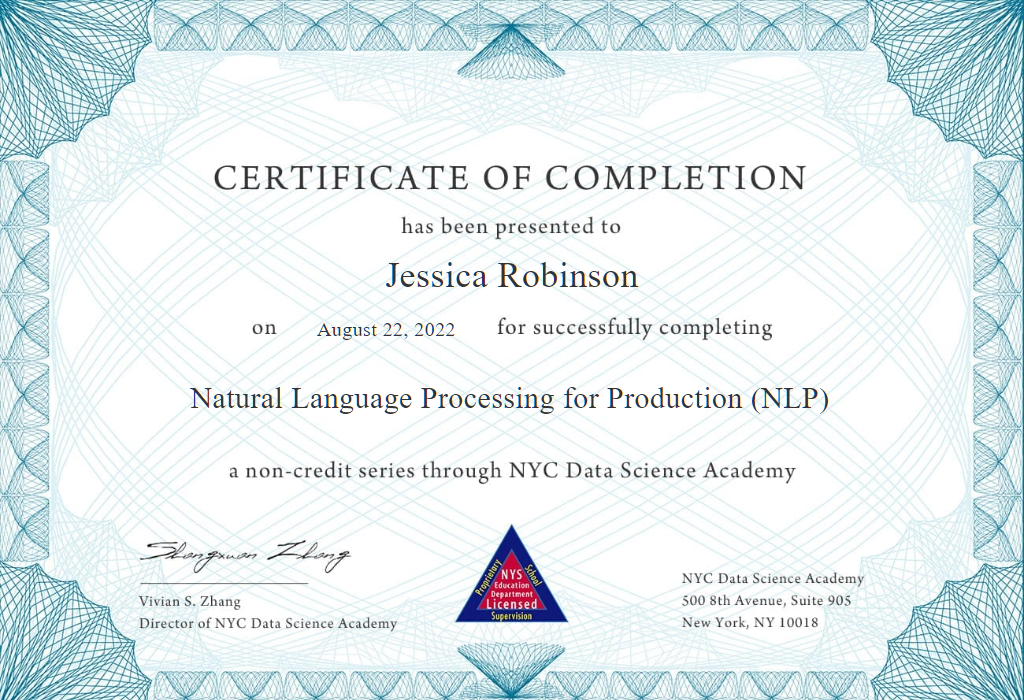Product Description
Course Overview
Society has been effectively communicating with different forms of text data for centuries and since NLP focuses on this type of data that has been exponentially increasing in the last decade, NLP has become one of the most exciting and rapidly growing sub-fields of Artificial Intelligence (AI) with immense research and practical interest. Organizations have been building and executing different text analytics capabilities to be able to:
- Store and process text data efficiently.
- Enhance the information extraction from high volume, velocity and variety of data
sources. - Derive insights that are not obvious or feasible through manual human efforts.
- Improve the decision-making utilizing different sources of information.
- Automate or accelerate time consuming manual processes.
- Advance the technology towards more generally applicable human-like AI frameworks.
NLP has had a big leap since 2017 when the large transfer learning models started to become more and more available. Nowadays one can utilize very large Neural Network models that have been trained on massive amount of text data using a piece of code thanks to open-source. This course aims to provide a solid foundation for effectively using these open-source text analytics technologies to be able to create NLP pipelines for different use-cases.
Prerequisites
This course will cover the text analytics starting from very basics and use Python. We keep the code in a Jupyter notebook using functions and will not dive into object-oriented programming, so medium level of Python knowledge suffices to comprehend the course content and assignments.
Certificate
Certificates are awarded at the end of the program at the satisfactory completion of the course. Students are evaluated on a pass/fail basis for their performance on the required assignments.
Students who complete 80% of the homework and attend a minimum of 85% of all classes are eligible for the certificate of completion.



